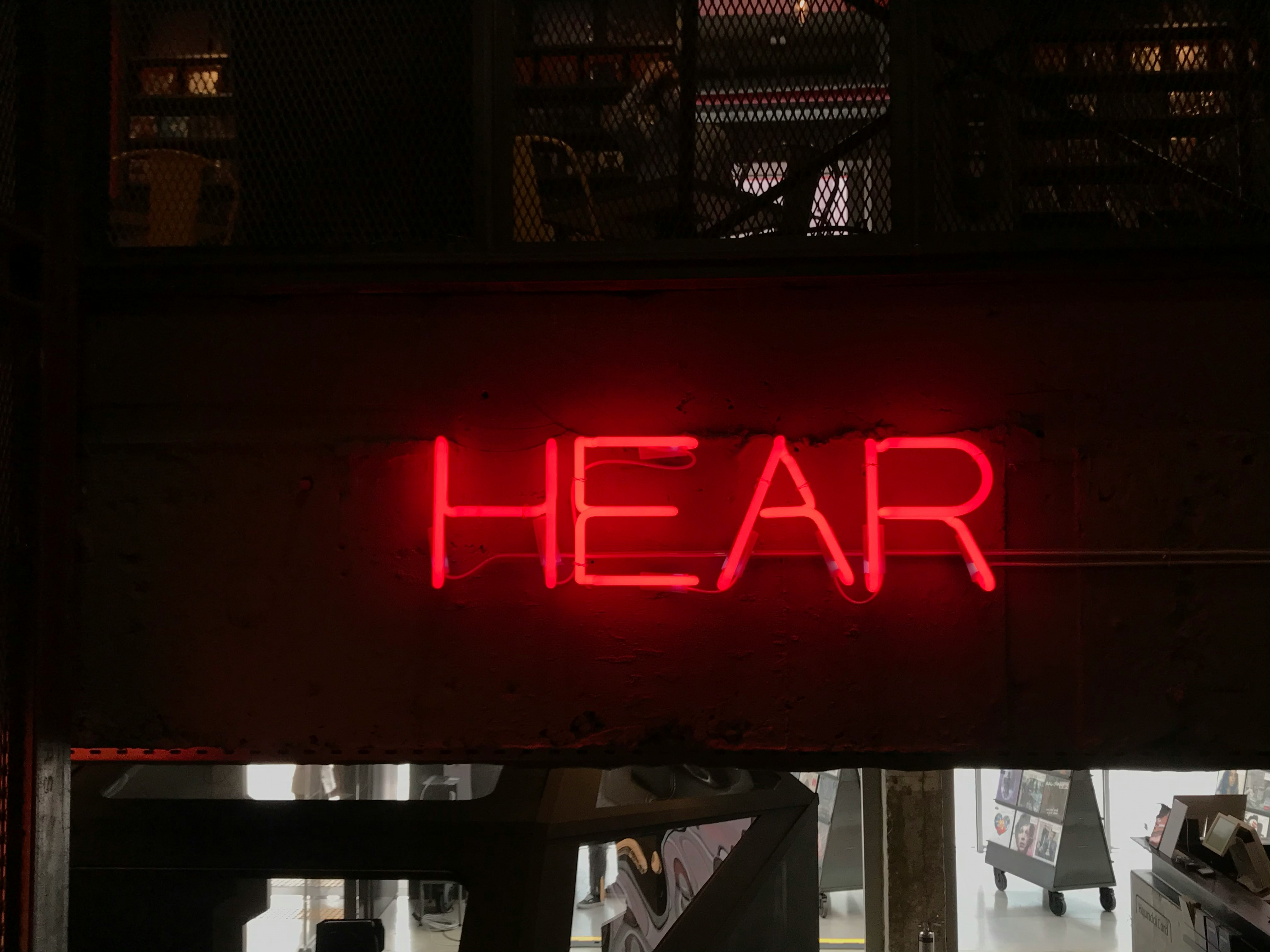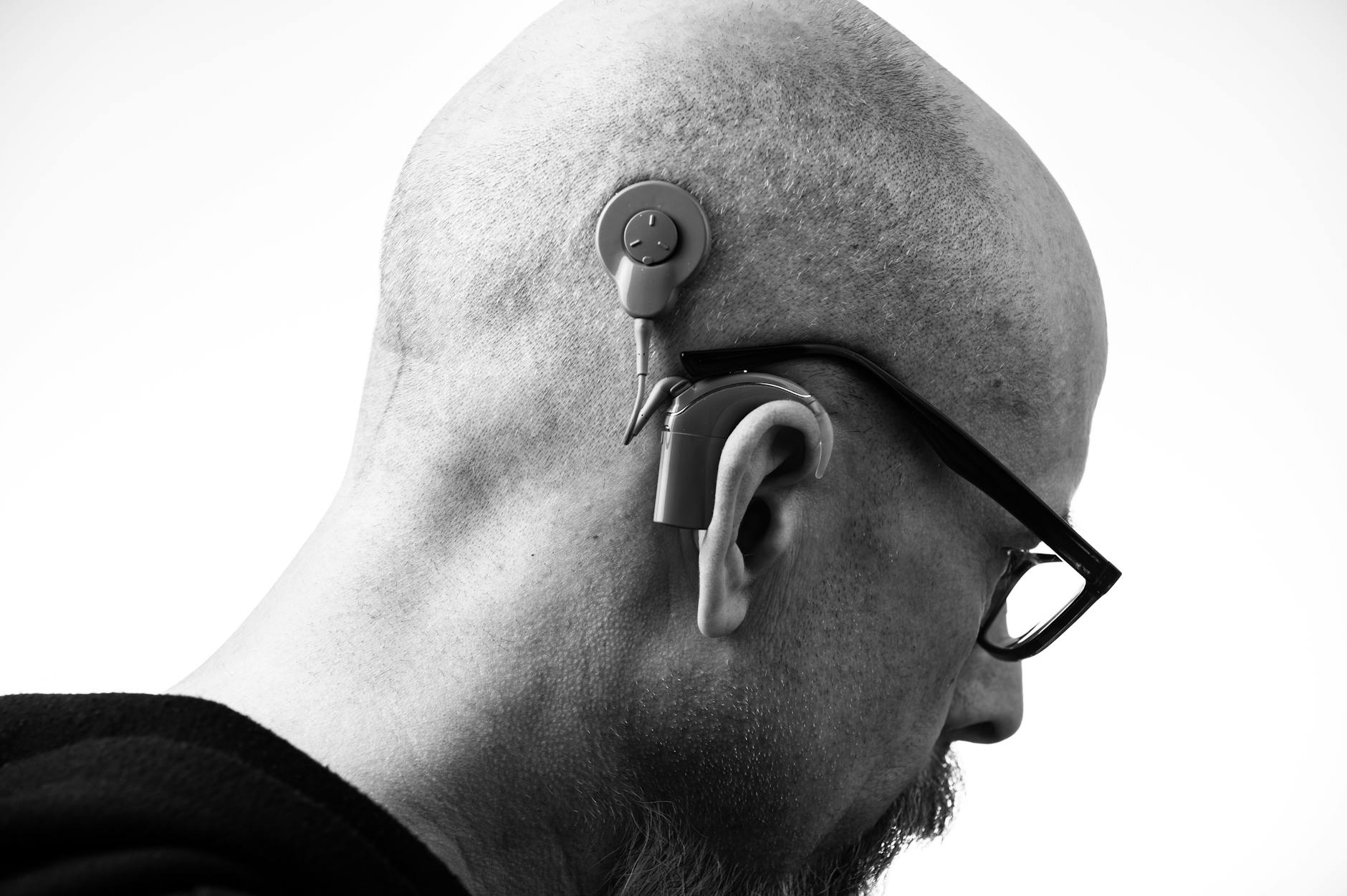If you snore loudly, wake unrefreshed, or already use CPAP, here’s a surprising twist: your ears may be part of the story. A growing body of research links obstructive sleep apnea (OSA) with higher odds of hearing loss and tinnitus—especially in the high frequencies that make speech clear. The good news? Understanding the connection gives you practical ways to protect your hearing and make conversations less exhausting.
Quick refresher: What is sleep apnea, and why might it affect hearing?
Obstructive sleep apnea is when your airway repeatedly collapses during sleep, leading to brief pauses in breathing. These events drop oxygen levels, jolt your nervous system, and strain the cardiovascular system. Over months and years, that stress can ripple into tiny, highly oxygen-sensitive structures throughout the body—your inner ear included.
How the ear could be affected
- Cochlear hypoxia: The inner ear uses a lot of energy to convert sound into signals. Repeated dips in oxygen (and reoxygenation afterward) can injure delicate hair cells, particularly those handling high frequencies.
- Vascular strain: OSA is linked to endothelial dysfunction and microvascular changes. The cochlea depends on a single terminal artery—anything that reduces blood flow can affect hearing.
- Inflammation and oxidative stress: Systemic inflammatory signals and oxidative stress can make the ear more vulnerable to damage from everyday noise.
- Central fatigue: Poor sleep quality may also dull attention, processing speed, and listening stamina, making speech-in-noise harder even if the basic audiogram looks “okay.”
What the research says (without hype)
No single study has all the answers, but several consistent patterns have emerged:
- Higher odds of hearing loss: Observational studies and national survey analyses have found that adults with sleep-disordered breathing show more hearing difficulty—especially at higher frequencies—than those without. The association tends to be stronger as OSA severity increases.
- Tinnitus is more common in OSA: People with OSA report tinnitus at higher rates than the general population. The mechanism may involve cochlear stress, cardiovascular risk, and sleep deprivation, but research is ongoing.
- CPAP and hearing/tinnitus: Treating OSA can improve overall health and daytime energy, and some small studies and clinical reports suggest it may reduce tinnitus loudness or distress for certain patients. Evidence is mixed; many do not see dramatic ear-related changes with CPAP alone.
- Cardiometabolic overlap: OSA often travels with hypertension, insulin resistance, and vascular disease—conditions that are independently linked to hearing problems. This overlap makes a heart-healthy, sleep-healthy lifestyle doubly valuable for your ears.
Bottom line: While OSA doesn’t guarantee hearing loss, the risk signal is strong enough to justify proactive hearing screening and prevention—especially if you’re over 40, have cardiovascular risk factors, or struggle in noisy places.
Signs your ears might be involved
- Speech seems muffled or “mumbly,” especially from female voices or kids.
- Restaurants and busy rooms feel chaotic; you miss words even when volume is fine.
- Ringing, whooshing, or buzzing (tinnitus) ramping up during periods of poorer sleep.
- Needing the TV louder than family prefers—or turning on captions more often.
- Listening fatigue: you keep up at work meetings, but feel wiped afterward.
If any of these resonate and you snore or have known OSA, consider it a nudge to check your hearing.
What you can do right now
1) Get a baseline hearing evaluation
Ask an audiologist for a comprehensive assessment that goes beyond a basic tone test:
- Pure-tone audiogram including high frequencies (up to 8 kHz; some clinics offer extended high-frequency testing to 12–16 kHz).
- Speech-in-noise testing to capture real-world listening performance.
- Tinnitus discussion and screening, if relevant.
This baseline lets you track changes objectively over time. It also helps tailor practical solutions, from hearing conservation to devices and training.
2) Treat the sleep apnea (and keep it treated)
- CPAP or APAP adherence: Aim for nightly use, ideally more than 4 hours per night. Consistency matters for symptom relief and overall health.
- Oral appliance therapy: If CPAP isn’t a fit, mandibular advancement devices can help some people.
- Lifestyle steps: Maintain a healthy weight, reduce alcohol near bedtime, sleep on your side, and manage nasal congestion.
Even if CPAP doesn’t “fix” tinnitus or hearing, better sleep and oxygenation reduce overall strain—and can improve your brain’s bandwidth for listening.
3) Protect your ears from everyday noise
Because OSA may heighten the ear’s vulnerability, noise hygiene becomes even more important:
- Use musician’s earplugs or filtered plugs at concerts, fitness classes, and loud events.
- Keep headphones at 60% volume or lower and take listening breaks.
- Wear earmuffs or plugs for power tools, yard work, and home projects.
4) Support your microcirculation
What’s good for your blood vessels is good for your ears:
- Target healthy blood pressure, blood sugar, and lipids with your clinician.
- Move daily; even brisk walks support endothelial health and sleep quality.
- Prioritize consistent, sufficient sleep—treated OSA helps.
5) Make speech clearer (not just louder)
If hearing tests reveal changes—or if you struggle in noise despite a near-normal audiogram—ask about tools that boost clarity:
- Modern hearing aids: Directional microphones and adaptive noise reduction can improve comfort and focus. If you don’t need full-time amplification, some models can be programmed for selective, situation-based use.
- Remote microphones: A small clip-on mic for your partner or meeting speaker can be game-changing in restaurants and conference rooms.
- Tinnitus features: Many hearing aids include sound therapy and calm soundscapes; pairing this with CBT-based tinnitus coping strategies can reduce distress.
An audiologist can personalize these choices to your hearing profile and daily listening needs.
Common concerns and nuanced answers
“My CPAP makes my ears feel full—should I worry?”
Positive airway pressure can transiently move air through the Eustachian tubes, changing middle ear pressure. Most people adapt, but some notice fullness, popping, or mild discomfort. If symptoms persist, worsen, or you develop pain or drainage, see an ENT or audiologist. Pressure settings, mask fit, treating nasal congestion, or using a different interface often solves the issue.
“If I fix my sleep apnea, will the ringing stop?”
OSA treatment doesn’t guarantee tinnitus relief, but better sleep can lower stress reactivity and reduce tinnitus intrusion for some people. Think of OSA treatment as removing a burden from your auditory system; pairing it with tinnitus-specific strategies offers the best odds of improvement.
“My hearing test was ‘normal’ but I still struggle in noise.”
You’re not imagining it. Standard audiograms don’t capture all aspects of hearing. Ask for speech-in-noise testing, check for hidden high-frequency changes, and consider strategies like remote mics, communication techniques, and auditory training. This is a great conversation to have with an audiologist.
How to talk to your care team
Bridging sleep and hearing care multiplies your gains. Here’s a simple plan:
- Tell your audiologist you have OSA (or suspect it). Share your symptoms and CPAP/oral appliance details.
- Bring your sleep study summary or CPAP data download if available.
- Ask for a hearing plan that includes speech-in-noise measures, lifestyle protection, and clear follow-up intervals (for example, annually or sooner if changes arise).
- Tell your sleep clinician about any tinnitus, ear fullness, or hearing changes you’ve noticed since starting therapy—they may adjust settings or address nasal issues.
Not sure where to start? Booking a baseline hearing evaluation is a low-stress, high-value first step. An audiologist can triage what’s ear-related, what’s sleep-related, and what you can do next.
For the research-minded: what’s next?
- Longitudinal studies tracking hearing before and after OSA treatment to clarify cause-and-effect.
- Mechanistic work on cochlear oxygenation, otoacoustic emissions, and auditory brainstem responses in OSA.
- Subgroup analyses to see who benefits most (for example, those with vascular risk or severe nocturnal hypoxemia).
- Integration of sleep metrics with real-world hearing outcomes like conversation success and listening fatigue.
As evidence develops, expect clearer guidance on screening intervals and targeted interventions.
Takeaway
Sleep apnea doesn’t act in isolation—and your ears may be among the quiet casualties. The solution isn’t complicated: treat the sleep apnea, protect your ears, and loop in an audiologist for a smart, personalized plan. Small, steady steps can make conversation feel easier and the day sound better.
If you’re experiencing new tinnitus, ear fullness, or trouble following speech—especially if you snore or have diagnosed OSA—consider scheduling a hearing test with a licensed audiologist.
Frequently Asked Questions
Can CPAP cause ear problems?
CPAP can temporarily alter middle ear pressure via the Eustachian tubes, leading to a feeling of fullness or popping in some people. This usually settles as you adapt. Persistent discomfort, pain, drainage, or sudden hearing changes warrant an ENT or audiology evaluation. Adjusting pressure, mask type, or treating nasal congestion often helps.
Will treating sleep apnea improve my tinnitus?
It might, but there’s no guarantee. Some people report tinnitus becoming less intrusive with consistent OSA therapy, likely due to improved sleep quality, reduced stress, and better oxygenation. Pairing OSA treatment with tinnitus-focused strategies (sound therapy, counseling, stress management) offers the best chance of relief.
Should everyone with sleep apnea get a hearing test?
A baseline hearing evaluation is a smart move, especially if you’re over 40, notice speech clarity issues, or have tinnitus or cardiovascular risk factors. Ask for speech-in-noise testing in addition to a standard audiogram to capture real-world listening challenges.
Is snoring alone linked to hearing loss?
Snoring can be a sign of sleep-disordered breathing. Studies linking sleep apnea to hearing problems often include habitual snoring in their definition of risk. If you snore and struggle with hearing or daytime fatigue, talk to your primary care clinician about a sleep assessment and consider a hearing check.
References
- National Heart, Lung, and Blood Institute (NIH) – What Is Sleep Apnea?
- National Institute on Deafness and Other Communication Disorders (NIH) – Age-Related Hearing Loss
- National Institute on Deafness and Other Communication Disorders (NIH) – Tinnitus
- Mayo Clinic – Obstructive Sleep Apnea
- PubMed – Association between obstructive sleep apnea and hearing impairment (systematic review/observational studies)


